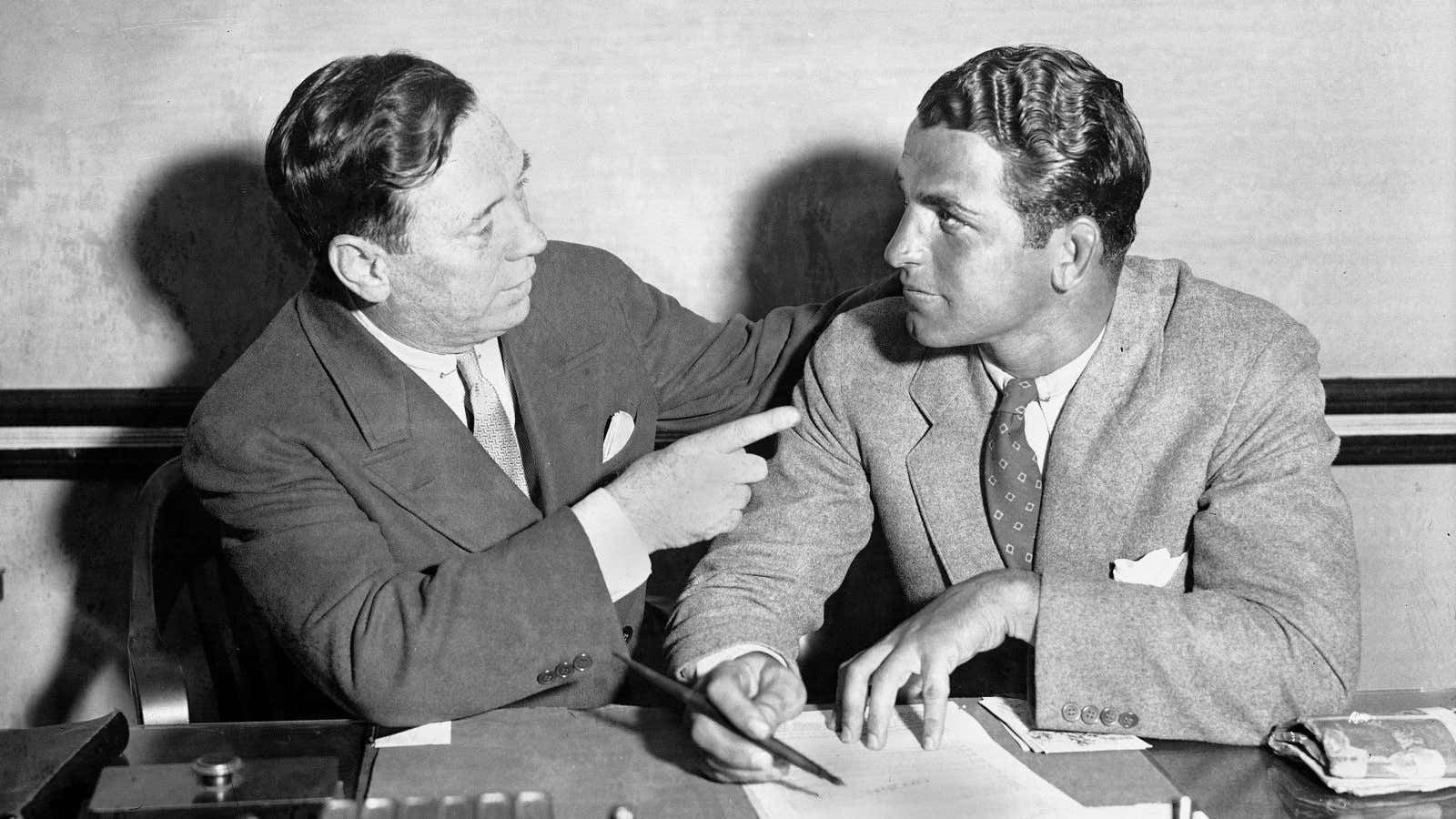With all their obvious eavesdropping and forced levity, Machiavellian characters of television and film are hard to miss. At your office, however, the colleagues who crave a seat near the top offer fewer tells—which is what makes new research from an international team of organizational behavior experts so intriguing.
Their discovery: Power-hungry people give more advice than others.
The finding, from a study published in Personality and Social Psychology Bulletin, comes from research undertaken to test advice-giving as a strategy for artificially elevating one’s sense of agency. According to Li Huang, an assistant professor at French business school INSEAD and a co-author of the study, “you can achieve a sense of power by giving other people advice.”
Moreover, Huang says, “on some level,” those who offer advice “are aware that giving advice offers them an avenue to enact the behaviours necessary to acquire power.”
In a series of experiments with college students, Huang and her fellow researchers—from Singapore Management University, USC’s Marshall School of Business, Harvard Business School, and Duke University—first learned that doling out advice led to feelings of empowerment, whether or not one’s recommendations were solicited. A second test replicated that finding and confirmed that people felt more like a bigwig when their advice was actually followed.
A third experiment paired 124 students who first answered questions about their networking orientation in a survey that the researchers say reveals a person’s power-seeking tendencies. These pairs met several days later, in class, for a one-on-one negotiation that they later critiqued. Next, they rated how the whole experience went, reporting how much advice their sparring partner had offered. At this stage, a link between giving advice and strong power-seeking habits emerged.
Finally, a fourth test involving a fictitious college student in need of some guidance determined that “students’ desire for power predicted how many pieces of advice they gave and how extensive their advice was,” Huang explains.
Offering advice instantly lifted a person’s sense of power by 10%, according to the data, but that high would evaporate when a participant was told that the student in need had rejected the free advice.
So it seems that much like an act of charity, sharing your prescription for a situation is not an entirely selfless act. Nevertheless, even if you could use the potential ego-enhancing benefits, the researchers suggest not dispensing your words of wisdom when no one has sought them. No one likes an aggressive do-gooder.
